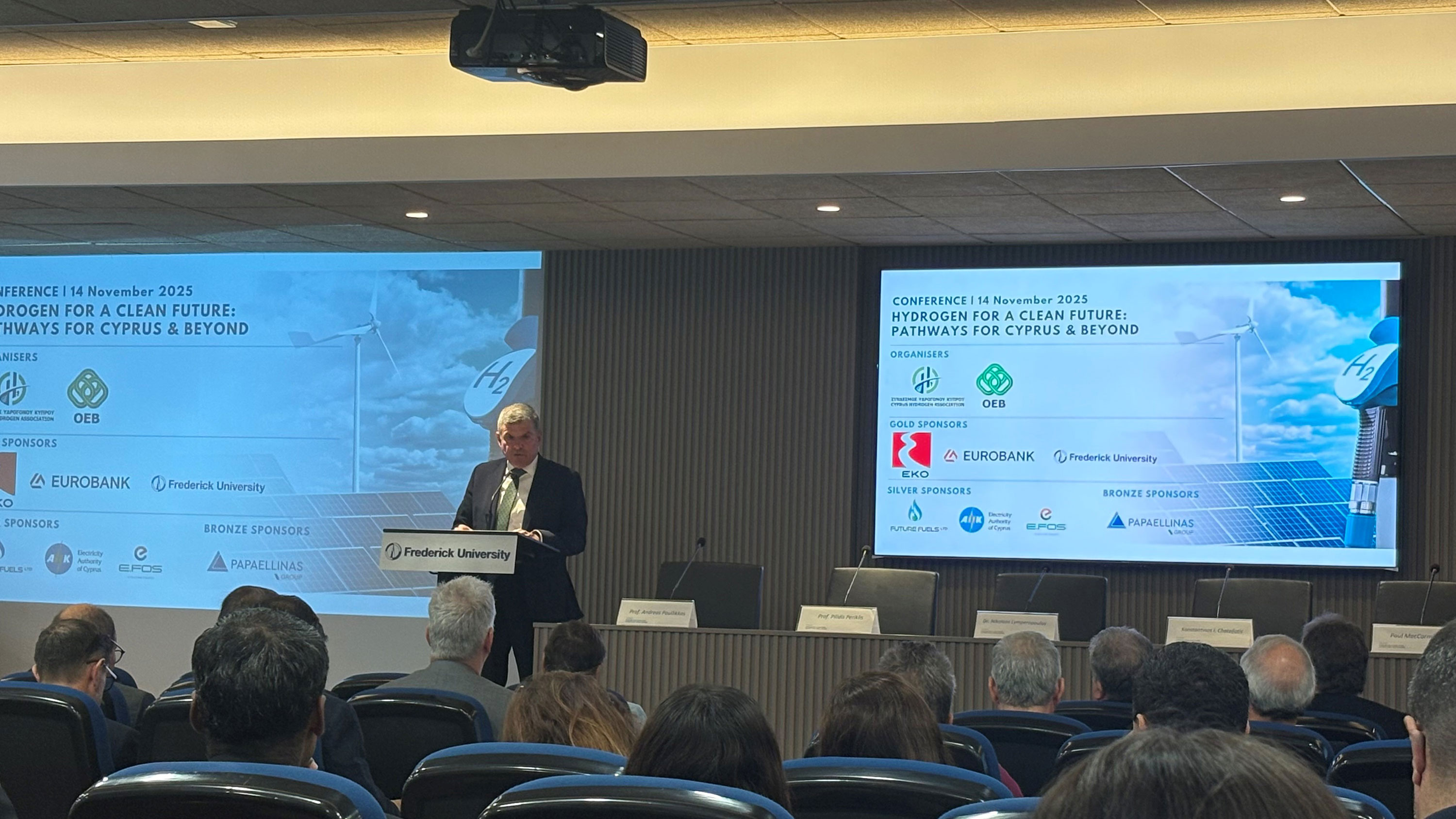The government aims for Cyprus to have a “hydrogen production business ecosystem” by the end of 2027 to bolster the island’s energy production, Energy Minister George Papanastasiou said on Friday.
Addressing a conference on the matter of hydrogen in Limassol, he spoke of hydrogen’s “decisive contribution to the new European energy reality” and said that Cyprus is participating in the European network of network operators for hydrogen (Ennoh), which aims to organise the European Union’s hydrogen transmission networks.
Ennoh membership, he said, will “strengthen [Cyprus’] capacity in research and development”, with the horizon of the end of 2027 set for “both power generation and transportation”.
Plans for enlarged use of hydrogen do not come without drawbacks, however, with Papanastasiou pointing out that Cyprus’ “lack of water” – something he described as “a critical factor for hydrogen production” – may present a “challenge”.
Hydrogen is produced through a process called steam-methane reforming, which involves reacting methane from natural gas with steam at temperatures between 700 and 1,000 degrees Celsius in the presence of a nickel catalyst.
Papanastasiou told the conference that the creation of a single kilogram of hydrogen requires between nine and 15 litres of water, while the reaction’s byproduct is carbon monoxide.
“Additionally, the required investments in specialised infrastructure are extremely costly and require careful technical and strategic planning,” he said.
He did, however, stress that “these challenges are not unique to Cyprus”.
“We observe that Europe’s shift towards an economically sustainable model implies a slower green transition due to increased costs. However, this should not discourage us. Private initiatives which promote innovative technologies through pilot programmes must continue, so that we do not fall behind international technological developments,” he said.
He added that the government “will support the development of hydrogen” and will “actively encourage private initiatives and pilot projects”.
As such, he said, the government will “establish the legislative and regulatory frameworks required for this to be a success”.
“Innovation and entrepreneurship are the fundamental driving forces of the energy transition and cooperation between private investment and targeted government policy can create a dynamic and sustainable hydrogen ecosystem,” he said.
At the same conference, Cyprus hydrogen association chairman Makis Ketonis said the island “must proceed with institutional interventions which will accelerate the adoption of hydrogen by consumers”.
“With legislation, tax incentives, and targeted promotion, hydrogen can become a key fuel of the future,” he said.
Meanwhile, House energy committee chairman and Disy MP Kyriakos Hadjiyianni said that hydrogen “constitutes the important transitional link between the current energy model and the clean system of the future”.
“Hydrogen combines two critical elements: the energy security of fossil fuels, which can be stored and used flexibly, and the purity and green production of renewable energy sources, which, however, remain unstable without storage,” he said.
He added that “without hydrogen, there can be no real energy transition”, and stressed that hydrogen “does not compete with renewable energy sources, but complements them, constituting the necessary means for balancing the system”.






Click here to change your cookie preferences